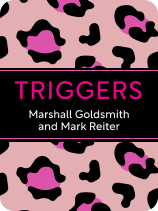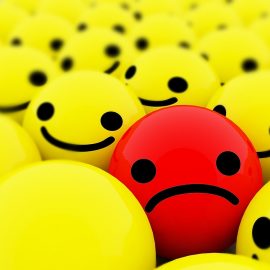

This article is an excerpt from the Shortform book guide to "Triggers" by Marshall Goldsmith and Mark Reiter. Shortform has the world's best summaries and analyses of books you should be reading.
Like this article? Sign up for a free trial here.
Are you looking for Marshall Goldsmith’s quotes from Triggers? What are some of the most noteworthy passages worth revisiting?
In their book Triggers, executive coach Marshall Goldsmith and co-author Mark Reiter assert that you don’t have to let your environment control your behavior. Instead, by understanding how you’re affected by your environment and how you tend to react to it, you can change your behavior for the better.
The following quotes highlight some of the key ideas from the book.
Triggers Quotes
In their book Triggers, executive coach Marshall Goldsmith and co-author Mark Reiter examine how triggers derail our efforts to behave in our best interests. They explain how you can become aware of your triggers, define the goals that will best serve you, and do the hard work of changing your behavior.
Below is a selection of Triggers quotes by Marshall Goldsmith:
“Our inner beliefs trigger failure before it happens. They sabotage lasting change by canceling its possibility. We employ these beliefs as articles of faith to justify our inaction and then wish away the result. I call them belief triggers.”
According to Goldsmith and Reiter, triggers can also be internal in origin. They provide many examples of internal beliefs and assumptions that trip us up. For example, we might feel overconfident about our ability to resist temptation. It’s common to indulge in inconsistency and think that it’s OK to give in to our triggers sometimes, as long as we don’t do it all the time. We also lack objectivity and want to take credit for our successes but blame others for our failures.
“The more aware we are, the less likely any trigger, even in the most mundane circumstances, will prompt hasty unthinking behavior that leads to undesirable consequences.”
Awareness can help you to notice the triggers in your environment and become more capable of responding to them in positive and productive ways. Think of a trigger as a catalyst: Normally, the catalyst sets off a chemical reaction. But you can add that moment of awareness as an inhibitor to stop the reaction. We tend to think of many of our reactions as automatic, but they aren’t. If you train yourself to become aware of the impulse, then you can interrupt the progression from experiencing a trigger to reacting to that trigger. And when you engage, then you can choose how to act.

———End of Preview———
Like what you just read? Read the rest of the world's best book summary and analysis of Marshall Goldsmith and Mark Reiter's "Triggers" at Shortform.
Here's what you'll find in our full Triggers summary:
- What triggers are and how to recognize them
- Why triggers are so effective at affecting your behavior
- Tools and strategies for resisting and avoiding your triggers






